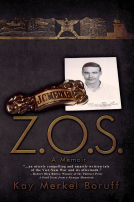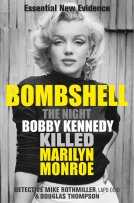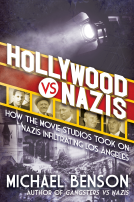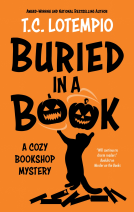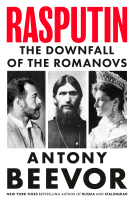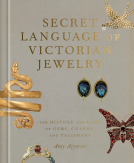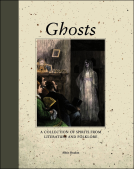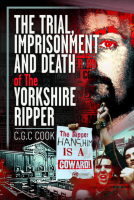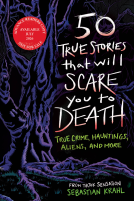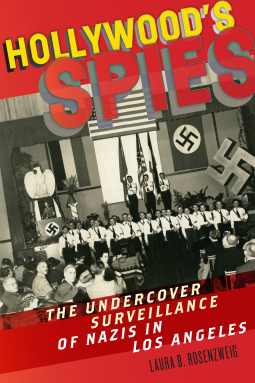
Hollywood’s Spies
The Undercover Surveillance of Nazis in Los Angeles
by Laura B. Rosenzweig
This title was previously available on NetGalley and is now archived.
Send NetGalley books directly to your Kindle or Kindle app
1
To read on a Kindle or Kindle app, please add kindle@netgalley.com as an approved email address to receive files in your Amazon account. Click here for step-by-step instructions.
2
Also find your Kindle email address within your Amazon account, and enter it here.
Pub Date Sep 19 2017 | Archive Date Sep 21 2017
Description
Finalist, Celebrate 350 Award in American Jewish Studies
Tells the remarkable story of the Jewish moguls in Hollywood who established the first anti-Nazi Jewish resistance organization in the country in the 1930s
In April 1939, Warner Brothers studios released the first Hollywood film to confront the Nazi threat in the United States. Confessions of a Nazi Spy, starring Edward G. Robinson, told the story of German agents in New York City working to overthrow the U.S. government. The film alerted Americans to the dangers of Nazism at home and encouraged them to defend against it.
Confessions of a Nazi Spy may have been the first cinematic shot fired by Hollywood against Nazis in America, but it by no means marked the political awakening of the film industry’s Jewish executives to the problem. Hollywood’s Spies tells the remarkable story of the Jewish moguls in Hollywood who paid private investigators to infiltrate Nazi groups operating in Los Angeles, establishing the first anti-Nazi Jewish resistance organization in the country—the Los Angeles Jewish Community Committee (LAJCC).
Drawing on more than 15,000 pages of archival documents, Laura B. Rosenzweig offers a compelling narrative illuminating the role that Jewish Americans played in combating insurgent Nazism in the United States in the 1930s. Forced undercover by the anti-Semitic climate of the decade, the LAJCC partnered with organizations whose Americanism was unimpeachable, such as the American Legion, to channel information regarding seditious Nazi plots to Congress, the Justice Department, the FBI and the Los Angeles Police Department.
Hollywood’s Spies corrects the decades-long belief that American Jews lacked the political organization and leadership to assert their political interests during this period in our history and reveals that the LAJCC was one of many covert "fact finding" operations funded by Jewish Americans designed to root out Nazism in the United States.
Available Editions
| EDITION | Other Format |
| ISBN | 9781479855179 |
| PRICE | $36.00 (USD) |
| PAGES | 320 |
Links
Average rating from 7 members
Featured Reviews
 Terri W, Reviewer
Terri W, Reviewer
Ever since World War II, questions have been raised as to why the American Jews didn’t do much to aid the beleaguered Jews of Europe. The absence of a strong national organization handicapped the American Jews. Their decentralized culture led to bickering. When solidarity was most needed, internal differences prevented them from finding common ground.
But they didn’t do nothing.
Antisemitism’s worst period in U.S. history coincided with the Nazi rise to power. Germany played an active role in fomenting political antisemitism in the U.S. For eleven years, from 1934 to 1945, the Los Angeles Jewish Community Committee maintained an active, if hidden, defense and counterpropaganda program against Nazi infiltration in the United States.
The LAJCC carried on covert fact-finding partnered with non-Jewish organizations and individuals. Working with groups like the American Legion kept their findings from being discarded because they came from Jewish sources. If Jews protested against the far right, the fascist would claim their protests were proof of their communist allegiances.
Informants found their way into the Friends of New Germany, forerunner of the German America Bund, and documented the relationship between Berlin and FNG. They provided warnings for new activity, such as the desire of FNG to acquire blueprints of National Guard armories.
From 1939 to 1941, the LAJCC, operating under the name News Research Service, published News Letter, a weekly, timely expose with information from their files, linking past and current events. Most of the major U.S. periodicals subscribed to News Letter—Life, Look, New Republic, Saturday Evening Post, Time—and used this research for their own articles and requested more information. The News Letter influenced national opinion makers with credibility to publicly confront Nazis in the U.S. in a way no Jewish defense group could.
While the Jewish community was divided in how to deal with Nazism and different groups appeared to compete for funds and status, this wasn’t a problem in Los Angeles. The LAJCC maintained its undercover operations because of the support of movie moguls of Hollywood. Dozens of Hollywood actors, directors, producers, and writers lent their money.
Los Angeles Jewish community fought its fight against Nazism with the financial support and skills and contacts of the motion picture industry to effectively enter the national political arena. The Hollywood moguls were not absent from the fight. They were merely hidden.
I had expected more about Hollywood personalities. They are briefly mentioned—contributing, meeting to plan, being targeted by Nazis. Because they worked behind the scenes, little else is revealed.
At times I got bogged down. As though the book was being prepared for court, every little instance is recorded, or so it seemed. However, it was an enlightening read. The Jews of Europe may not have received help, but the American Jews likely didn’t realize how much the movie men contributed to their, and the country’s, well-being.
 Reviewer 343665
Reviewer 343665
This book explores the little known Nazi infiltration and resistance by people in the film industry. If this part of history intrigues you, this book will be of enormous interest. I think we are pretty lackadaisical nowadays in terms of understanding just how precarious the situation was here in the US in the late 30s etc. Intelligent, determined people, many of them Jews, got a move on and went to work to debug the country. To be sure, it's a good book and long overdue in the library of WW2 stories. I have one serious criticism, though, and it's about the title. It's a shameless come on. Anybody who expects to hear about"Hollywood " will be sorely disappointed. Some of the names will be recognizable but the author doesn't tell you anything about THEM. So please change the title to something more honest.
 Susan J, Reviewer
Susan J, Reviewer
Princess Fuzzypants here:
In the days leading up to WWII, the threat of the spread of Nazism was pervasive. America was anything but immune. There were many people who sought to swing opinion to the German cause and might have been far more successful had it not been for a handful of heroes in Hollywood. No one needed to tell the Jewish community leaders what the results would be if the German's were successful. So they banded together, sometimes at cross purposes it might seem, often only loosely allied. They did squelch the Nazi propaganda machine that was churning out lies and deceit.
This is a fascinating look at some of the lesser known characters who spearheaded the actions. Some were famous movie people while others were behind the scenes. They may not have swung opinion towards entering the war on the side of the British but they kept the Naxis from getting a strong toehold in the US.
I give it four purrs and two paws up.
Readers who liked this book also liked:
JUNO
Arts & Photography, Comics, Graphic Novels, Manga, Travel
Jennifer Marshall Bleakley
Christian, Health, Mind & Body, Religion & Spirituality
Chris Cook
History, Nonfiction (Adult), True Crime
John Kotter; Holger Rathgeber
Business, Leadership, Finance, Nonfiction (Adult)
